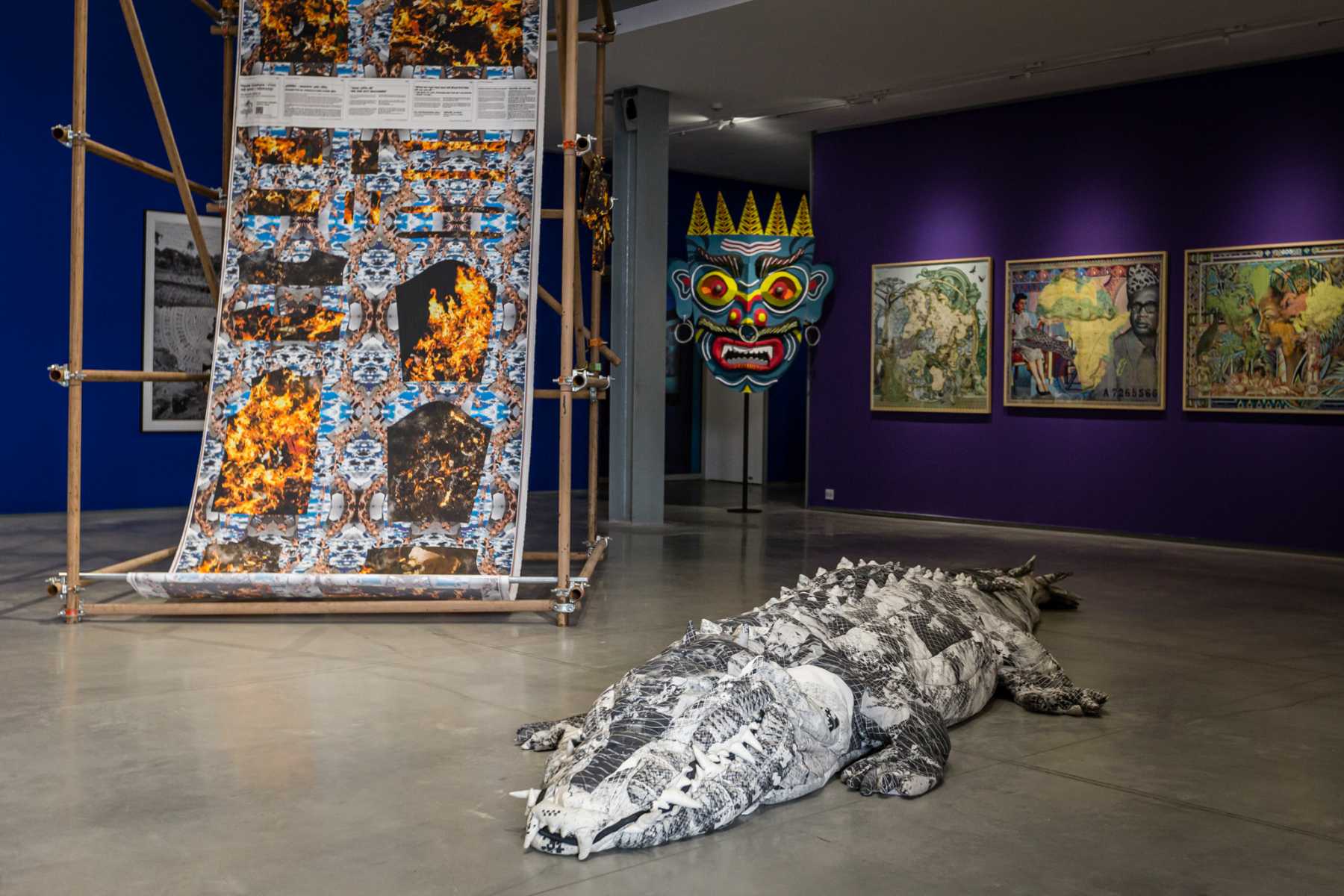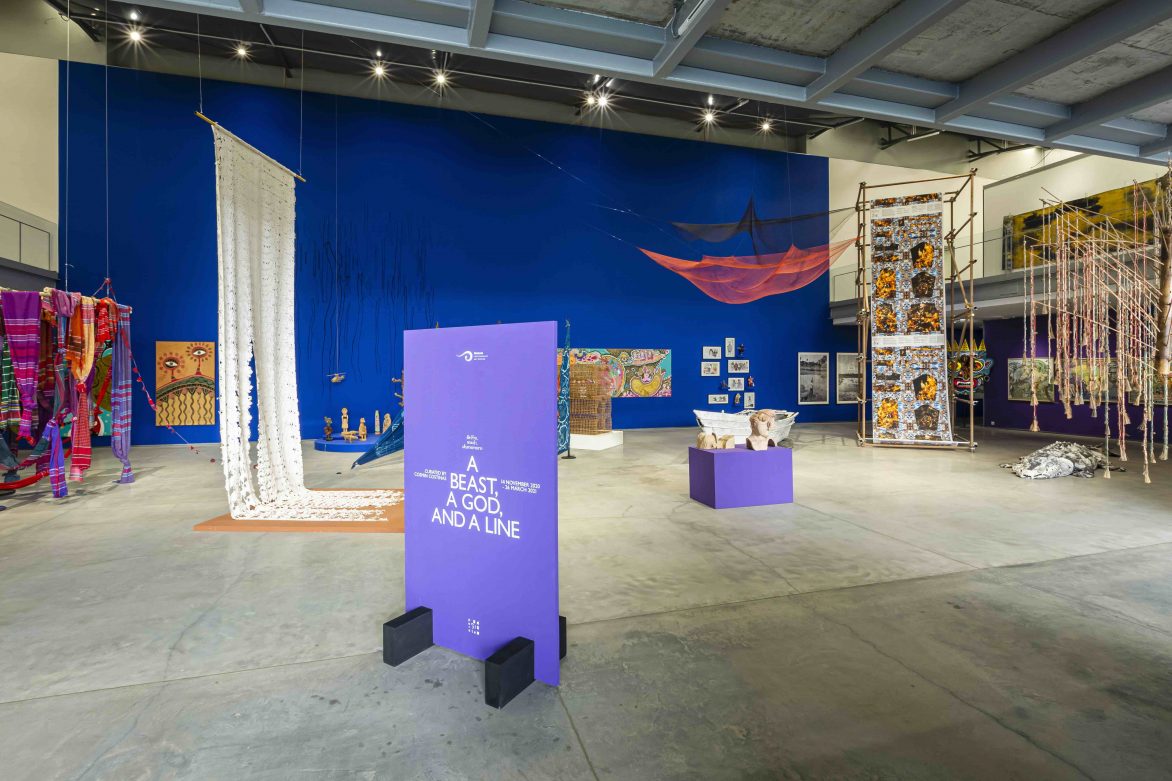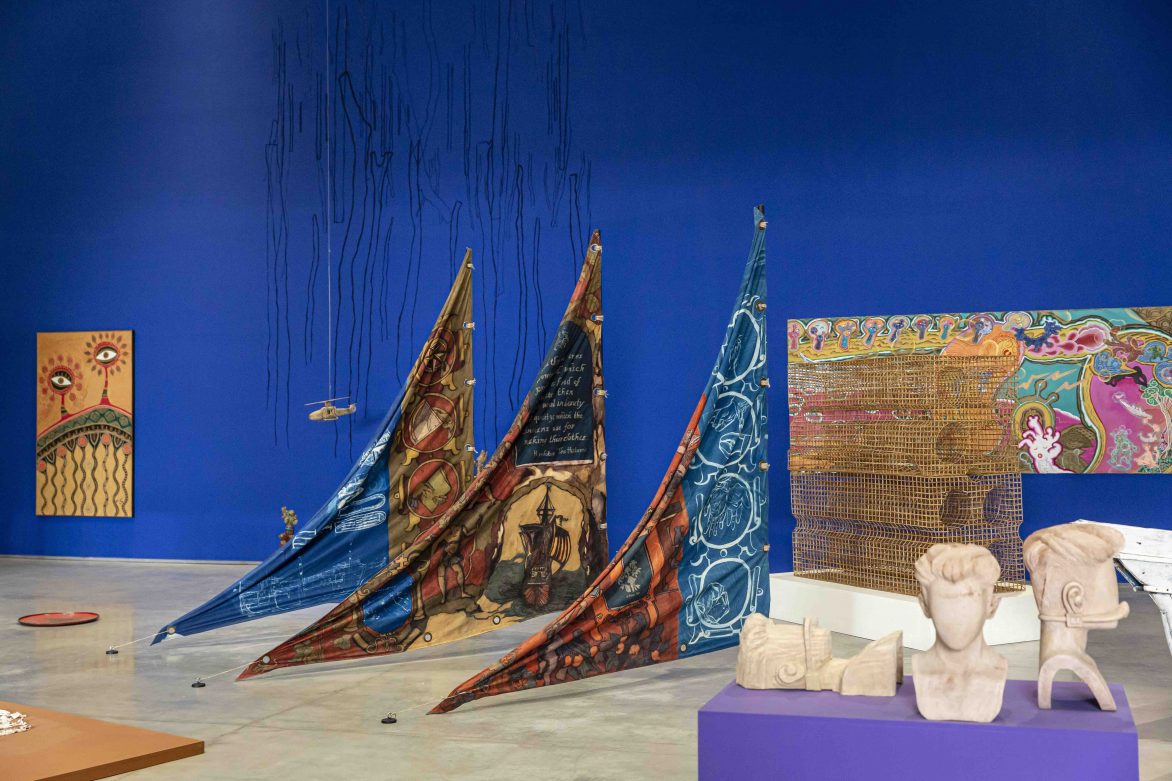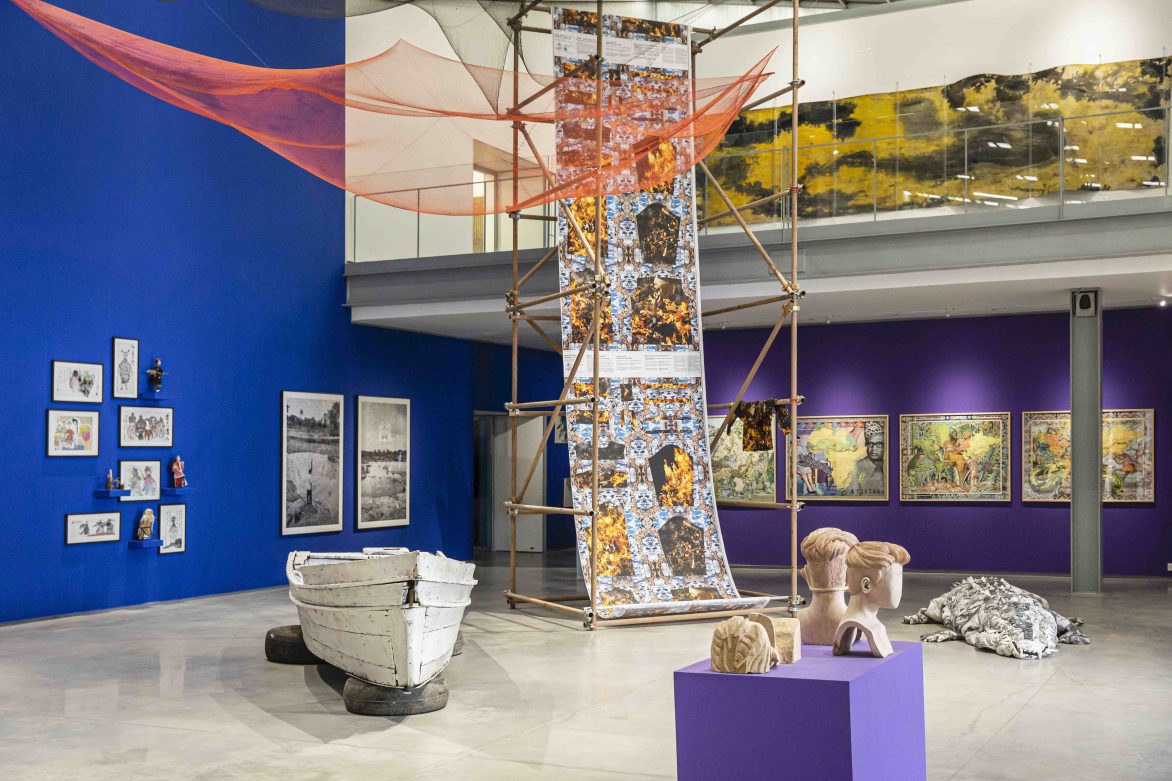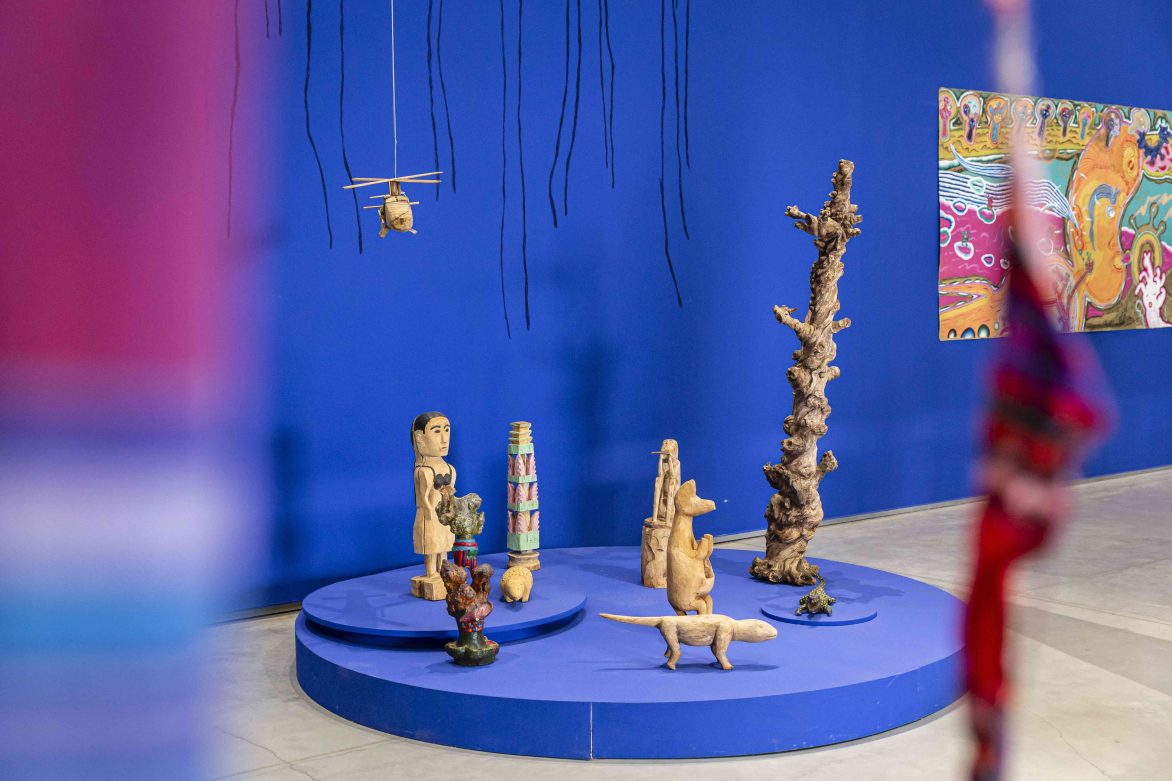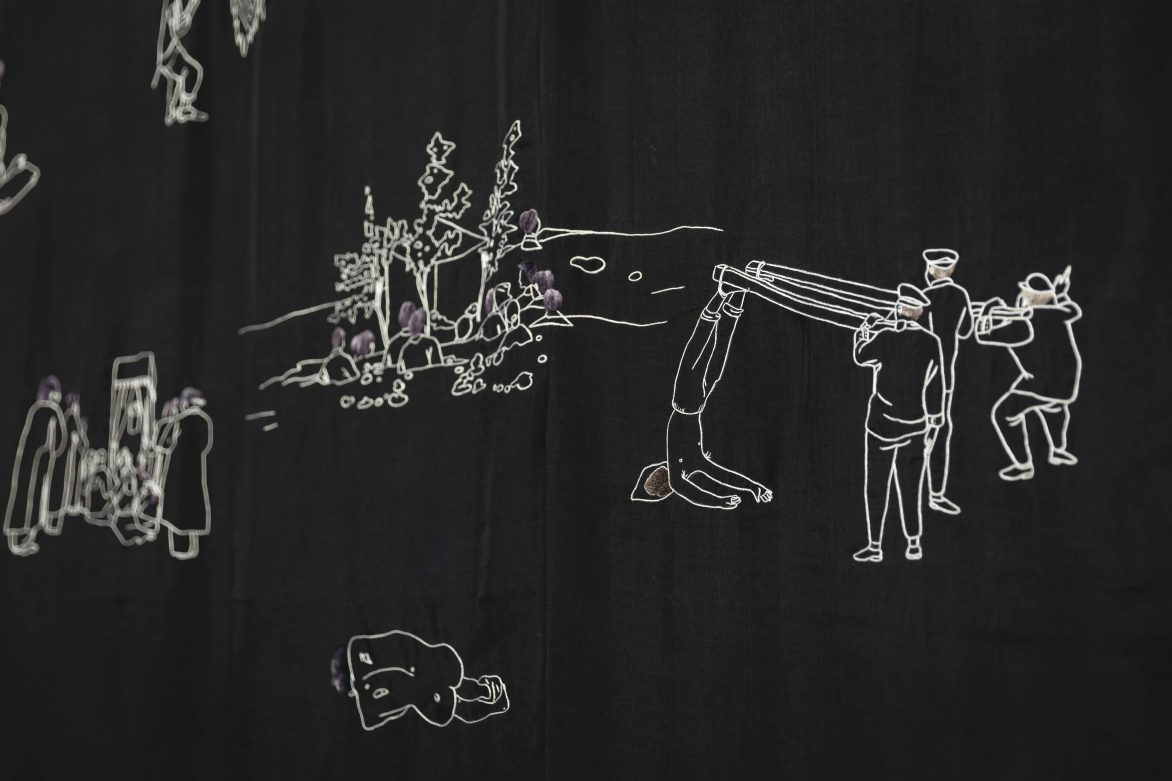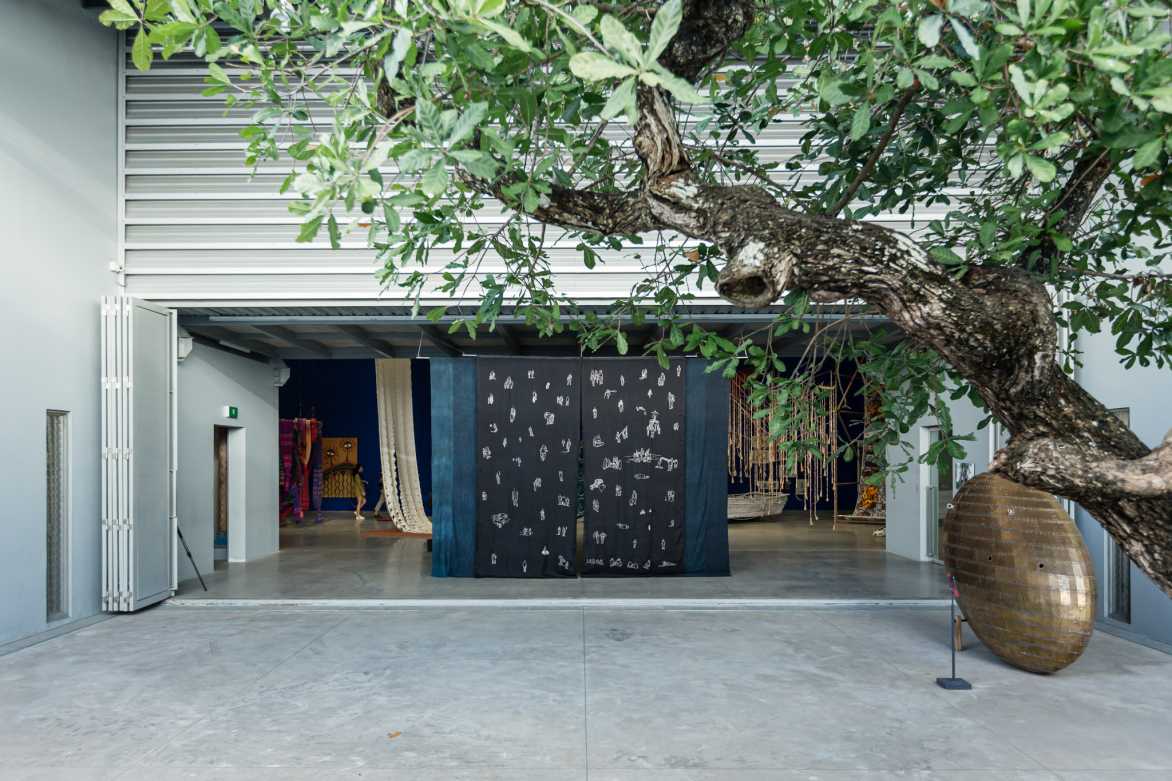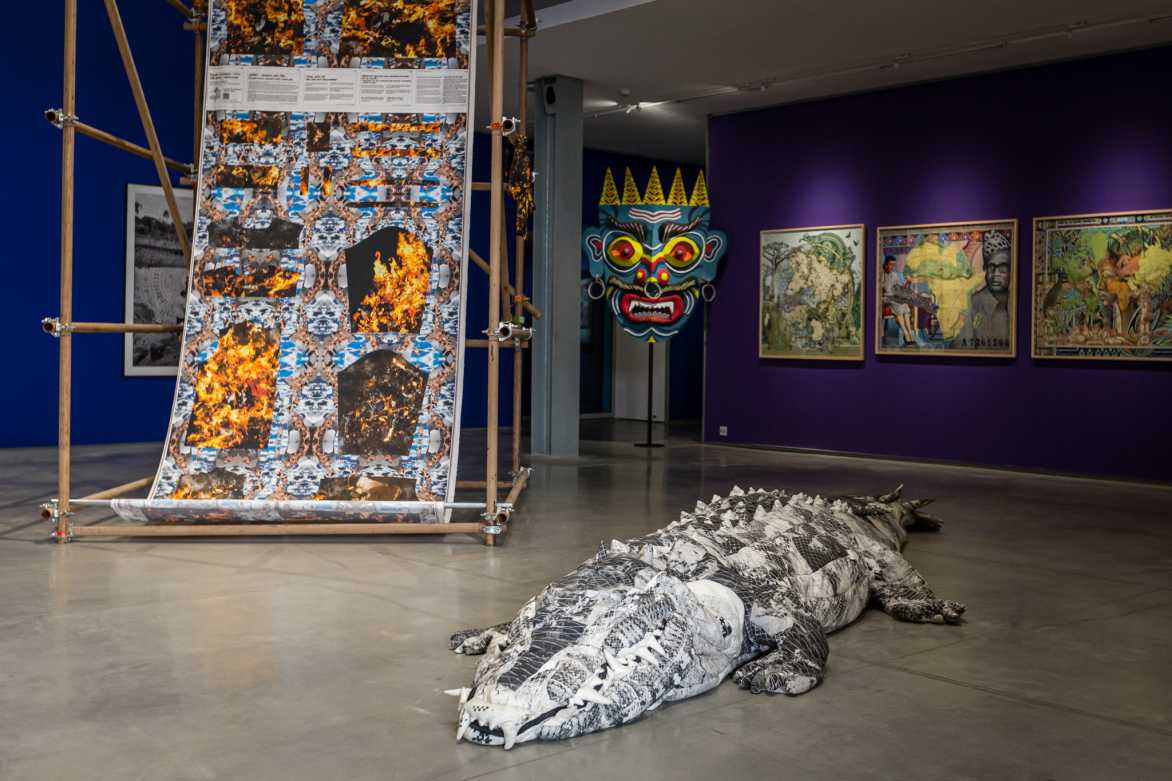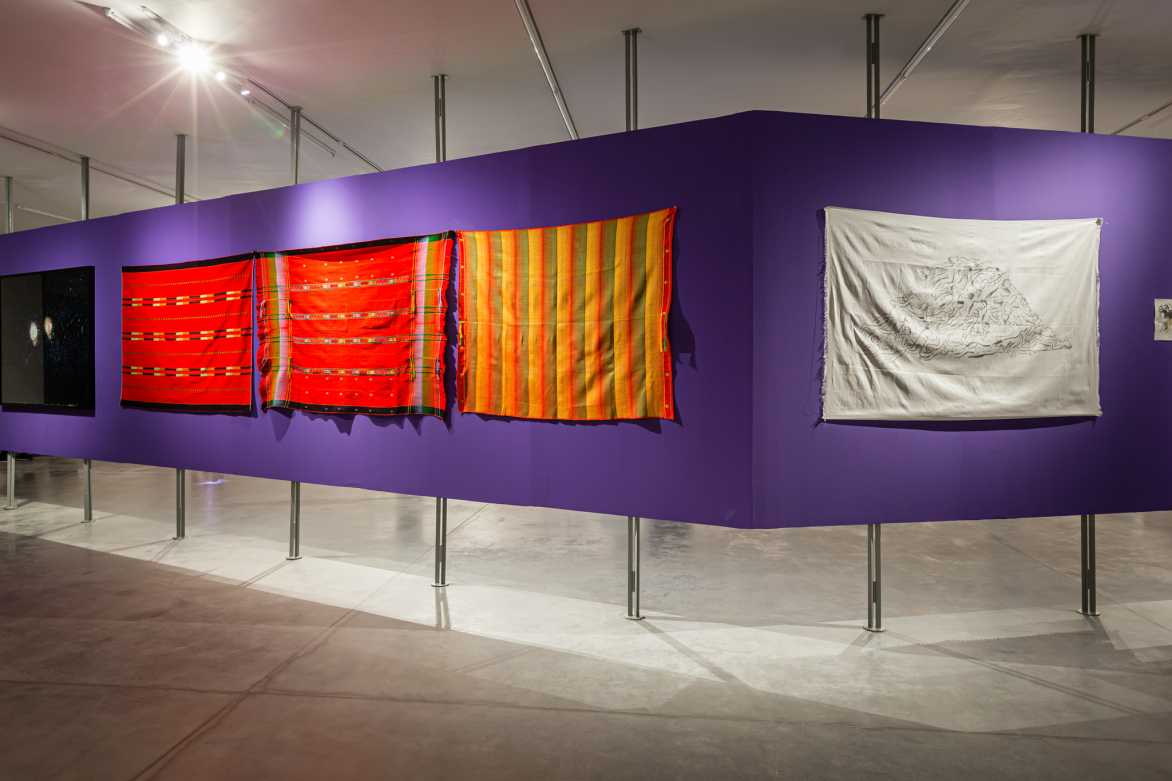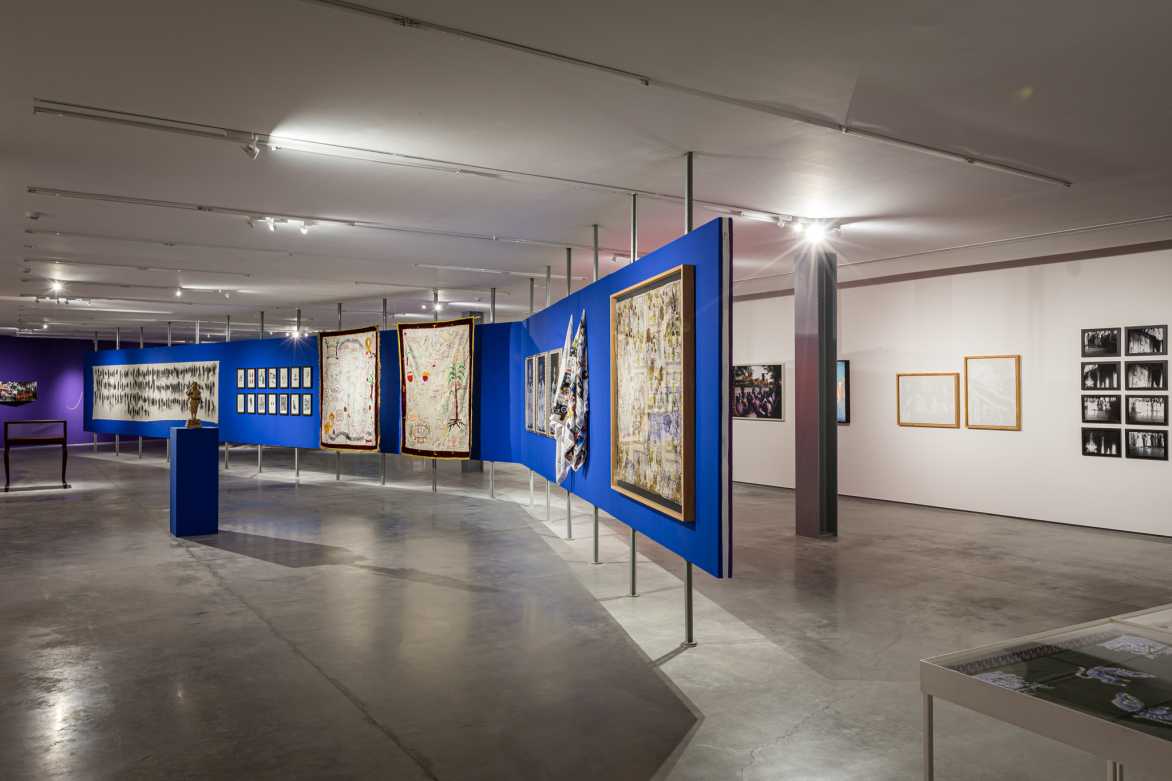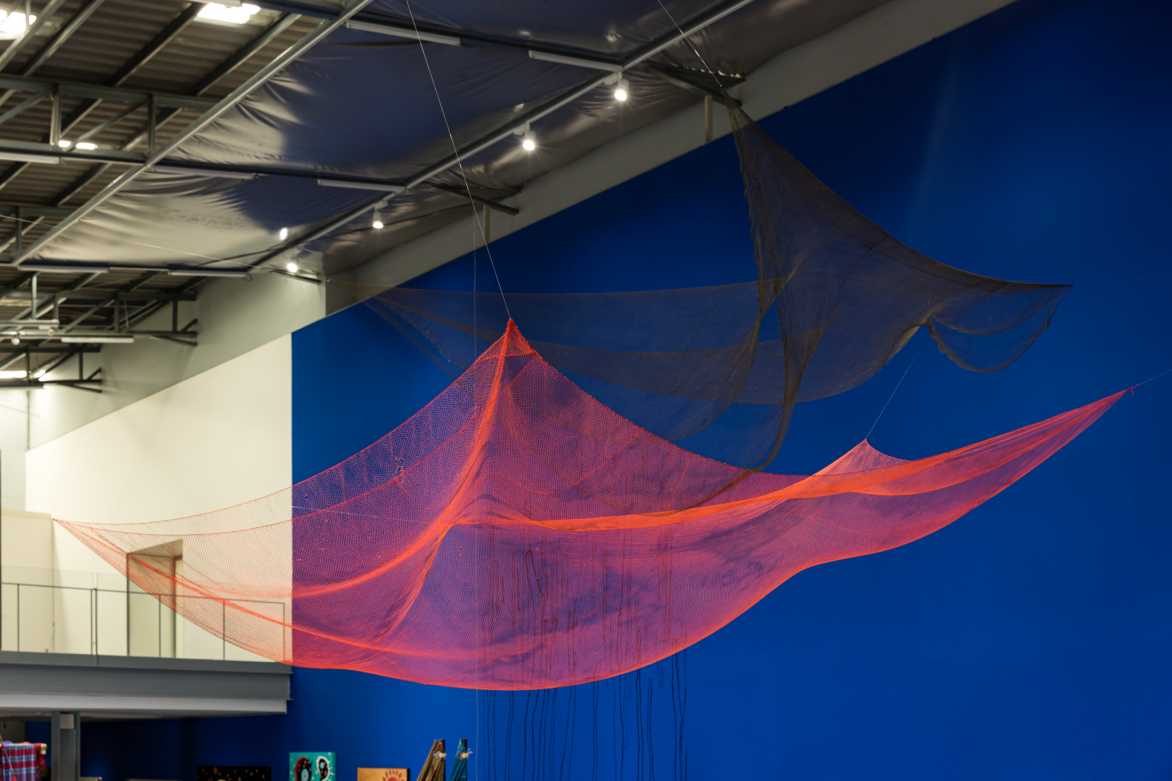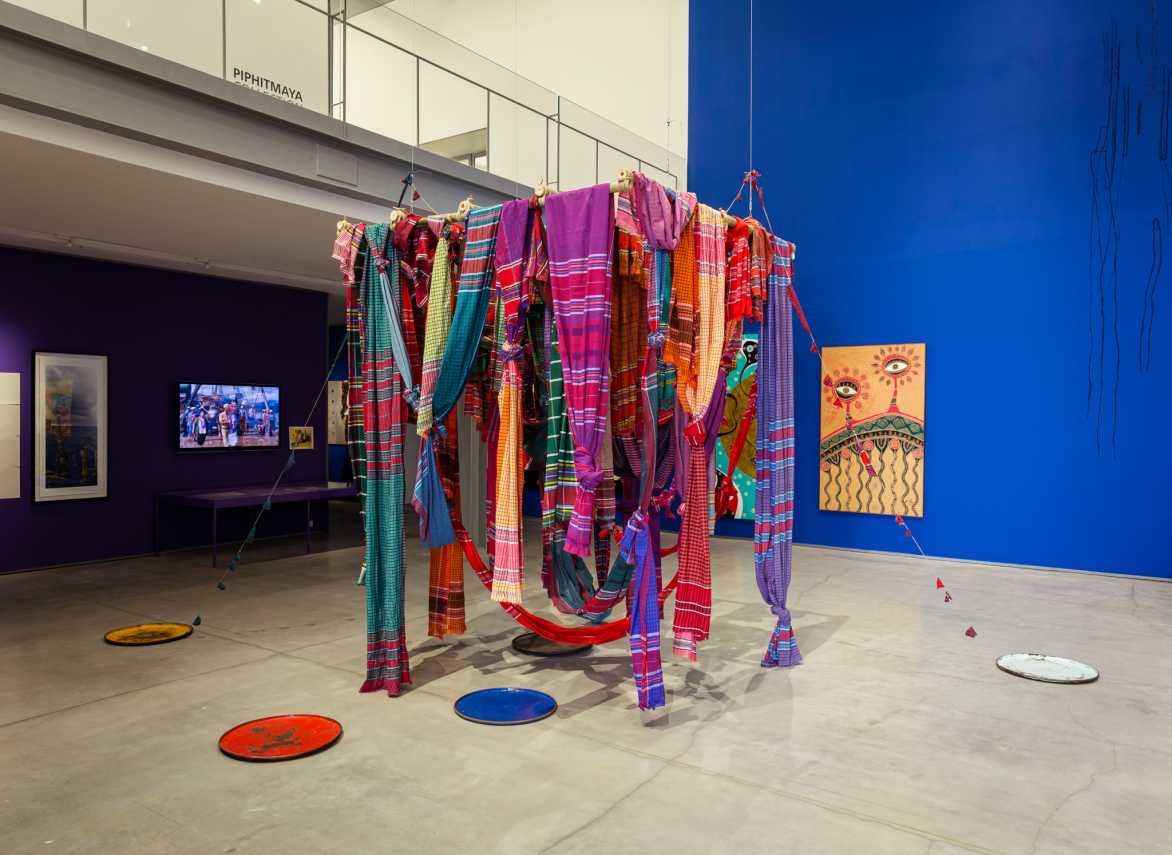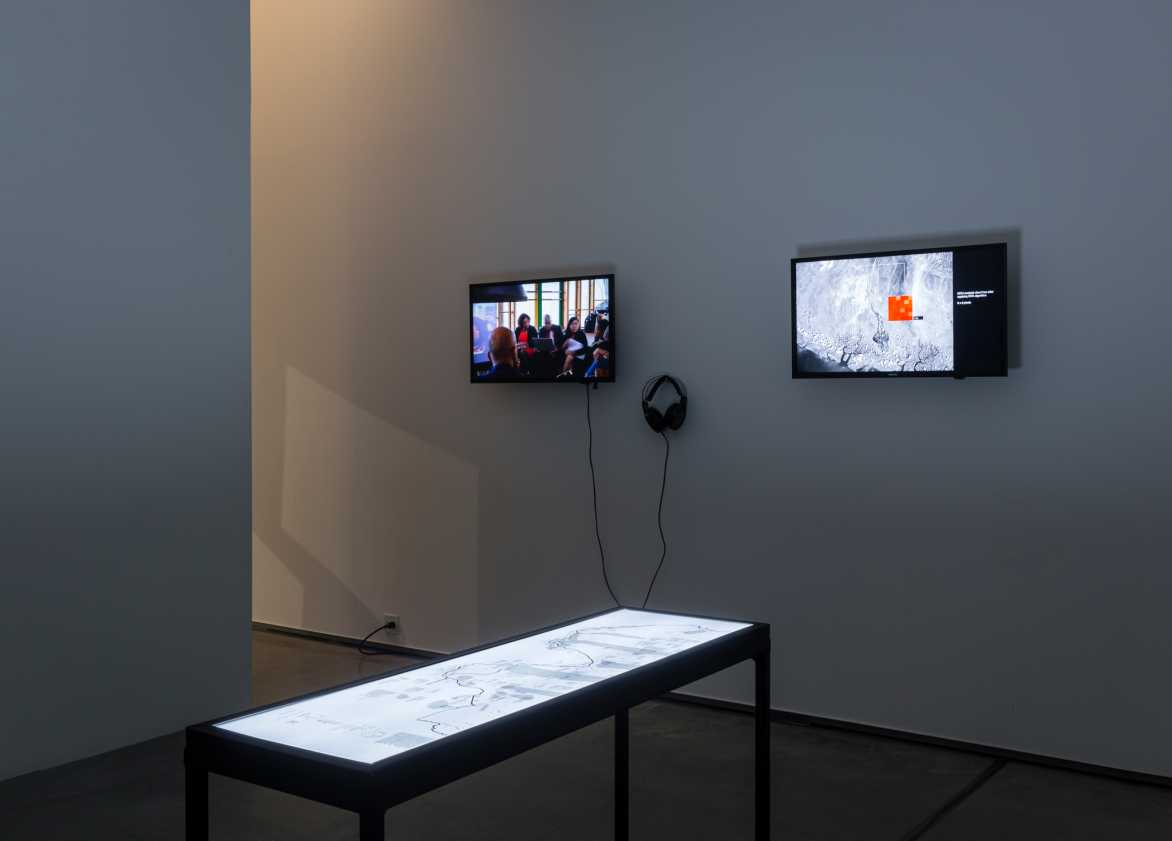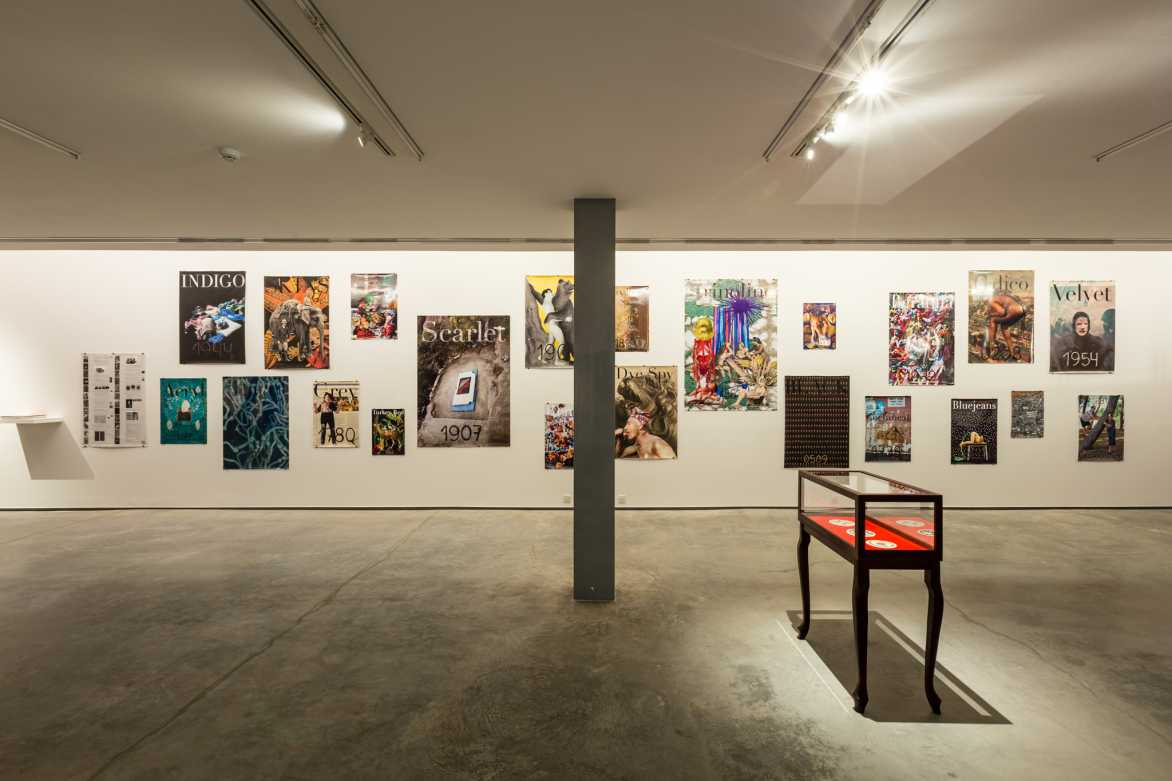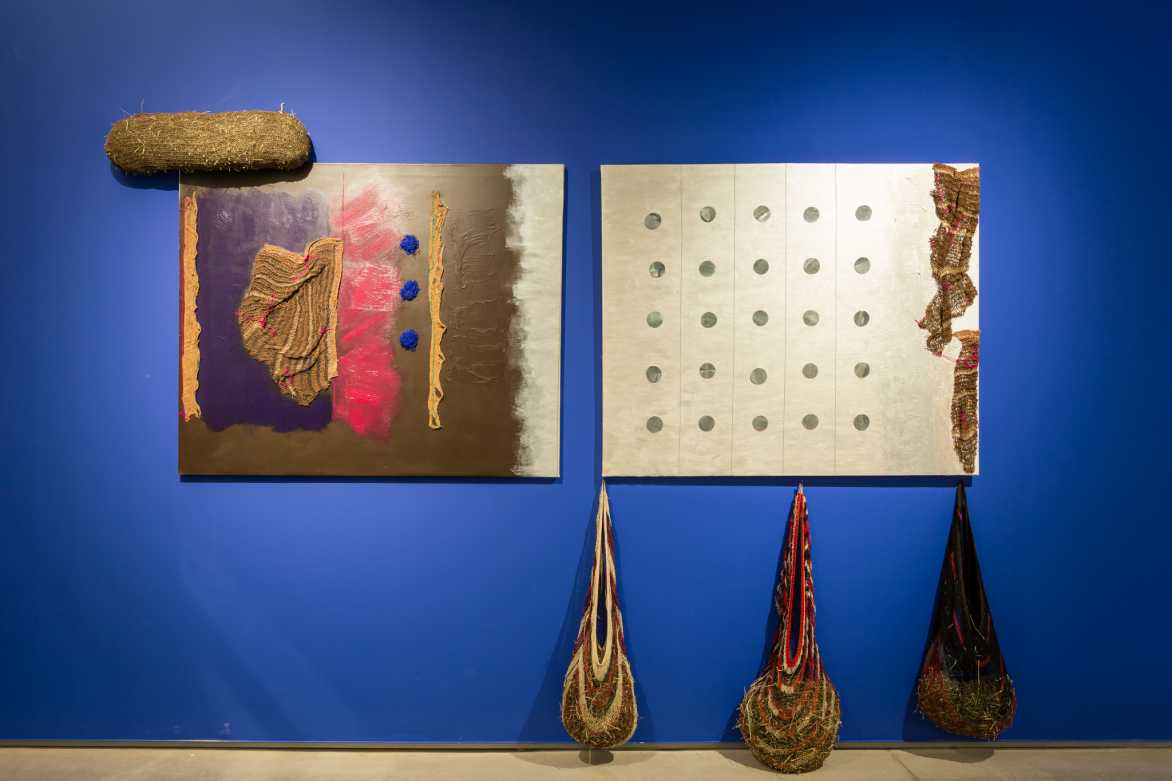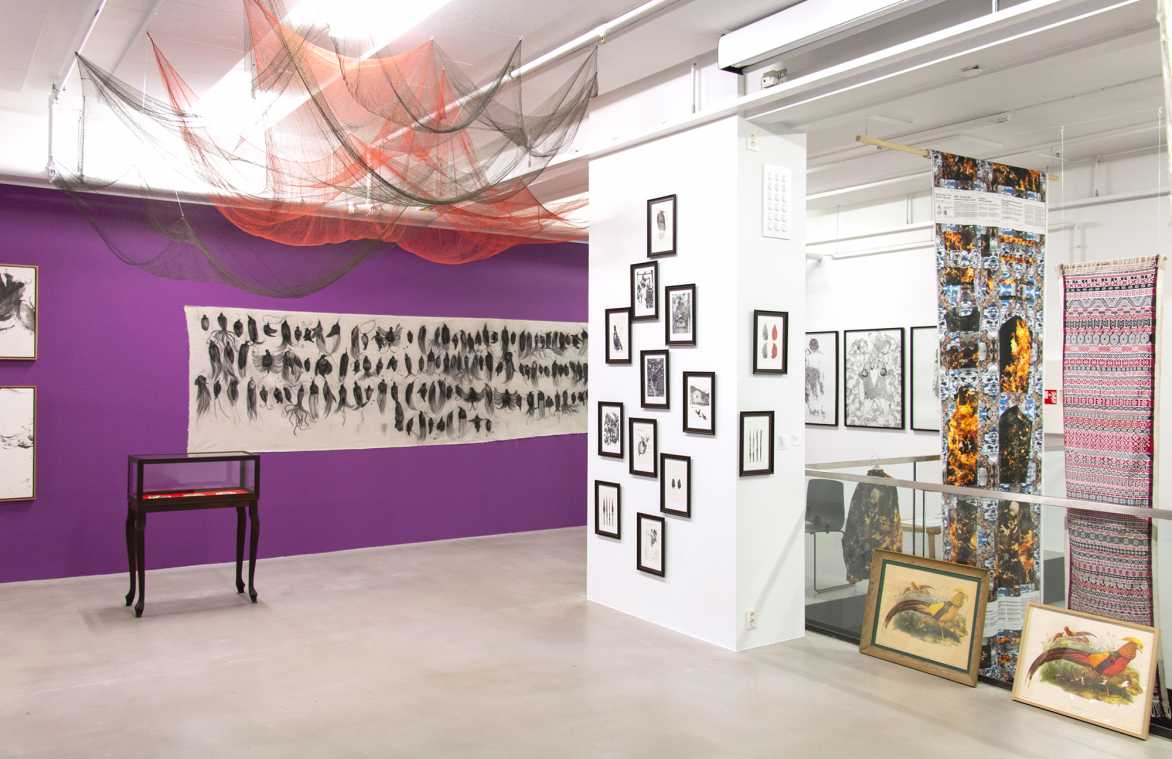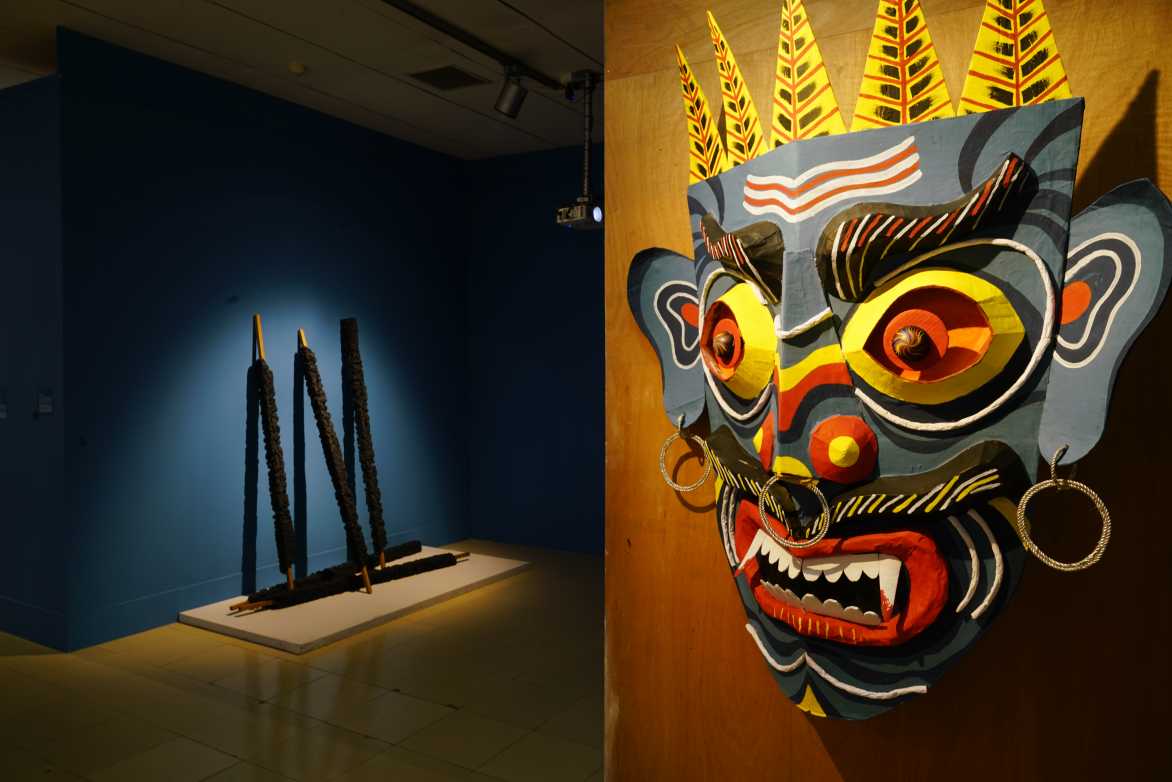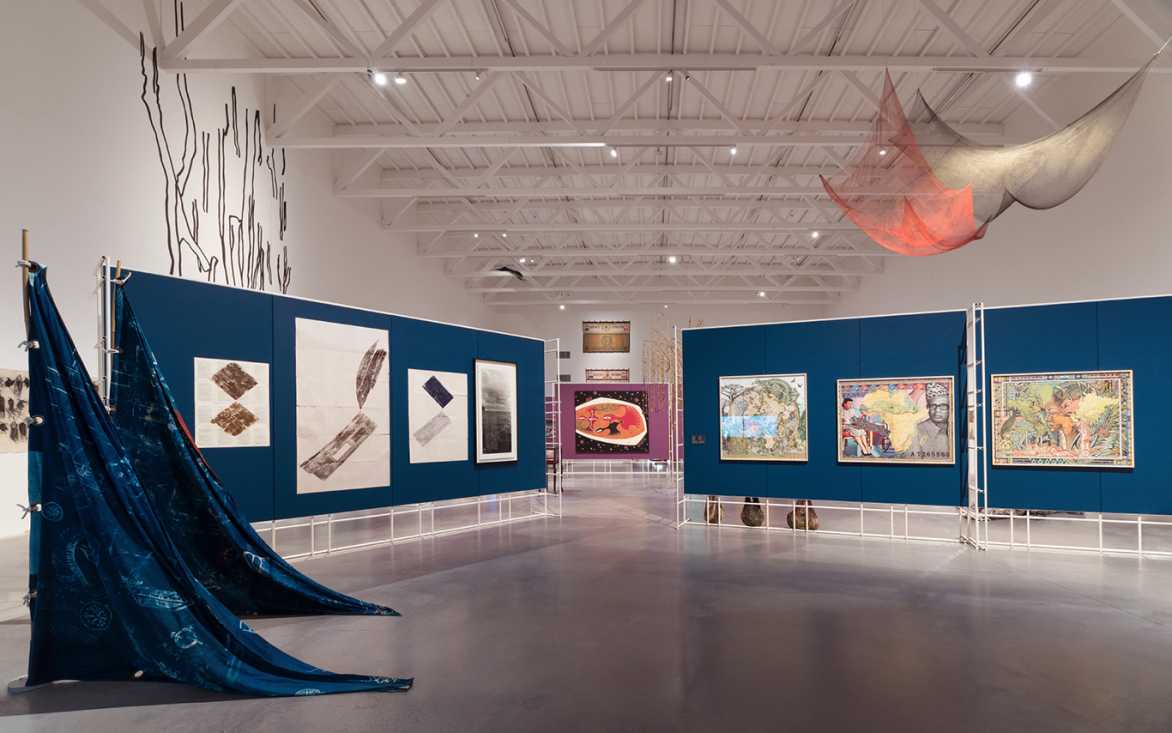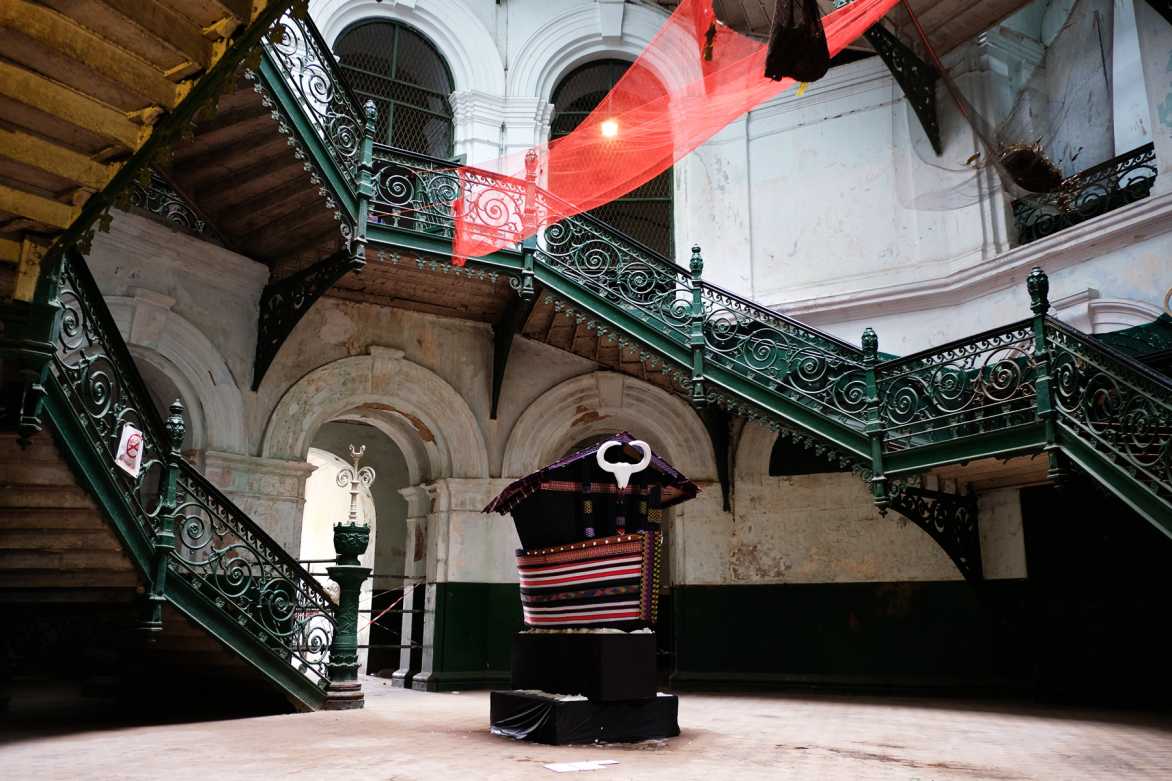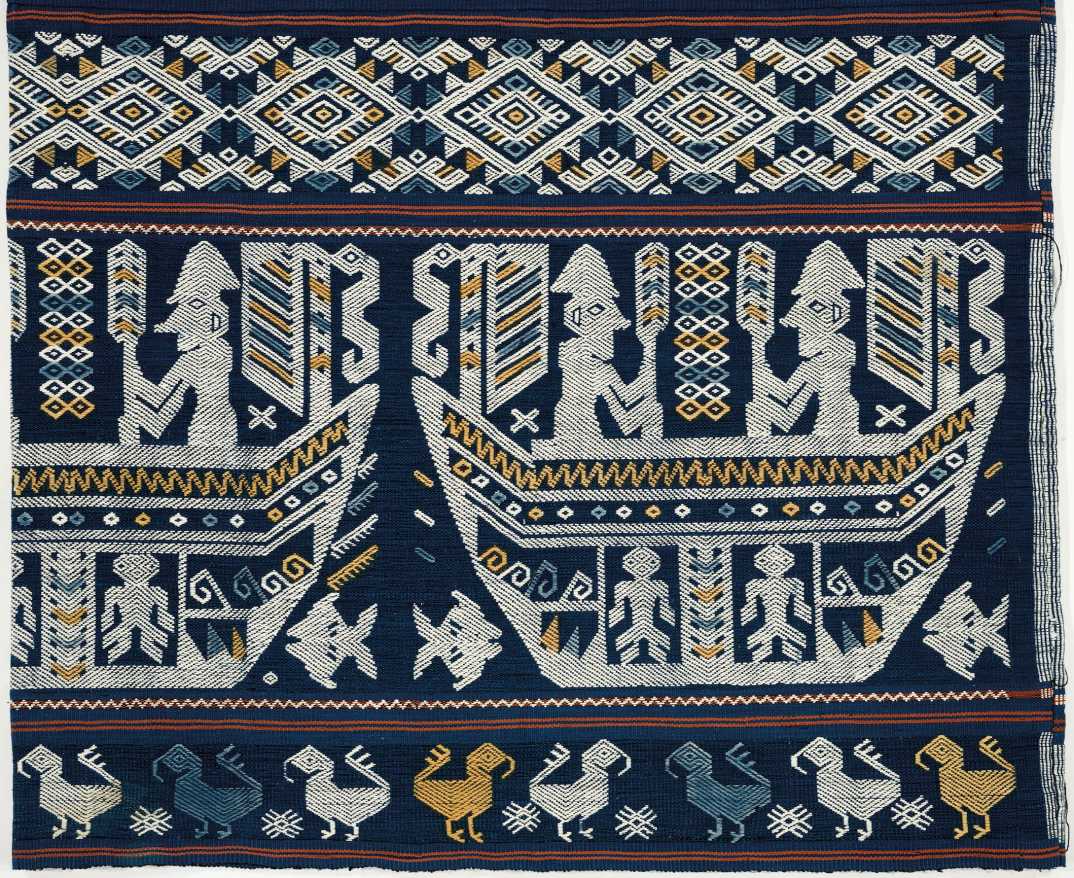
Para Site is delighted to present A beast, a god, and a line at MAIIAM Contemporary Art Museum, curated by Cosmin Costinas. The exhibition welds a narrative of the geographical expanse of Asia-Pacific as a collective universum, where the works on view bridge geographies and timeframes. Ancient and contemporary travel routes, personal biographies, political and environmental violence, and a revisiting of historiographies are but a few of the threads transcending the show. Over 60 artists from across the region which include Cambodia, India, Vietnam, Madagascar, Bangladesh, Philippines, Australia, as well as Thailand, sets a foundation for the possibility of taking an in-depth glimpse into this complex region of the world in both its political and artistic sense.
A beast, a god, and a line question how we should negotiate common ground in the context of the overall political and ideological fragmentation discussed above. How can positions that claim disparate and conflicting genealogies sit together in a shared exhibition space? One tenuous leading line that weaves diverse intersecting layers and different aspects of this exhibition are textiles. A material and language common to different cultural spaces, textiles also have a firmly routed history in art, being possible sites for parallel processes of historiography. Moreover, textiles hold a different position in negotiating relationships with places and contexts, in ways that the individual agency of artists escapes.
The exhibition works from today’s loss of confidence in the ideals and certainties of liberal democracy that have shaped globalisation in the previous decades. Across Asia-Pacific, as well as in Europe and most of the world, alternatives and challenges to Western modernity are currently proposed or unfolding. The artists in the exhibition investigate traces of colonial domination, as well as the different ramifications of that hegemony today, when cultural and environmental genocides continue to unravel landscapes, communities, and worlds, particularly among the most marginalised indigenous groups. The curator has selected artworks from MAIIAM’s collection to provide relatability in the context of Thailand, whilst contributing to the intentions and relevance to the exhibition. Many of the artists in A beast, a god, and a line are among the most powerful voices who today are reinventing the significance of matter, objects, and forms, their genealogies and deep significance.
The exhibition is organised by Para Site, Hong Kong. It was on view at Dhaka Art Summit, Dhaka, the Museum of Modern Art, Warsaw, as well as at The Secretariat (Pyinsa Rasa/TS1), Yangon throughout 2018, and previously at Kunsthall Trondheim, Norway in 2019.
